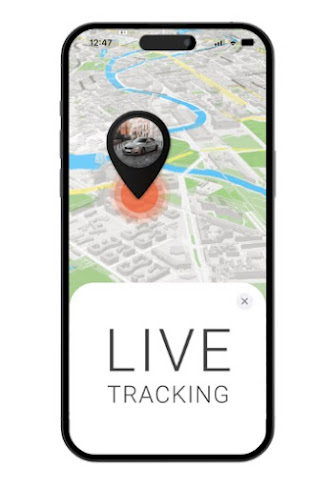Given that transportation is a rapidly growing industry in many countries, the advantages of a Vehicle Tracking System have the potential to change the way business practices have been conducted for a long time. Automobile growth has also resulted in an increase in traffic accidents and vehicle theft. The use of GPS technology has allowed fleet owners to reap the benefits of a technological revolution that has had a significant impact on the practices of several industries and sectors.
What exactly is GPS tracking?
The technological advancement has made it simple to track or locate a car using GPS.
The Global Positioning System, or GPS, is a satellite-based global navigation system that synchronizes time, location, and velocity.
GPS tracking technologies are being used more and more by transportation management companies to precisely monitor their cars and identify areas for efficiency improvements.
GPS is widely used. GPS systems are present in your automobile, smartphone, and watch. GPS facilitates your journey from one point to another.
How does a GPS tracker operate?
GPS tracking devices work by broadcasting radio signals and connecting to satellites to determine a person's or object's location using geographic positioning. When you connect a GPS tracking device, it immediately retrieves the data and transmits it to the satellites. Using latitude and longitude, the satellites determine the location of a specific point and its approximate distance.
Many car owners and fleet managers have chosen to equip their vehicles with a vehicle tracking device and have firsthand knowledge of its benefits. However, many people are still skeptical of using a GPS vehicle tracker.
Consider the following major benefits of a vehicle tracking system if you are one of them:
Real-time tracking
The vehicle tracking systems offer real-time vehicle tracking. They use a map to track the location of vehicles as they move from one location to another. If the vehicle is currently moving, the GPS location and speed are displayed. Knowing the location of your drivers, vehicles, and equipment at all times allows you to respond to emergencies more quickly. It also allows you to ensure that the appropriate vehicles, people, and resources are dispatched to the appropriate locations.
Route history
Examine the distances and routes taken over the last 365 days. It allows you to browse the places you've been as well as the routes you've taken. This feature is very useful if you want to see a summary of your weekly or monthly activities or if you want to see all of the images you took at a specific location.
A useful feature of any good vehicle tracking system is trip history. This feature allows you to track all of your vehicle's trips, allowing you to determine whether your driver has been taking unauthorized trips or deviating from the best routes for personal reasons.
Virtual Fence
Virtual-fencing is an enhancement to personalized alerts. You can define an area around specific landmarks or locations on the map. When the vehicle enters or exits the geo-fenced area, you will be notified. You can then improve operational efficiency, raise security and state levels, and optimize the workforce by better monitoring route information.
Alerts setup
Configure all GPS tracker alarms in a single step. Most high-quality vehicle tracking systems include a variety of alerts that can be configured to notify immediately of inappropriate or dangerous behavior. There are speeding alerts, SOS alerts, speed alerts, and shock/movement alerts available.










No comments:
Post a Comment